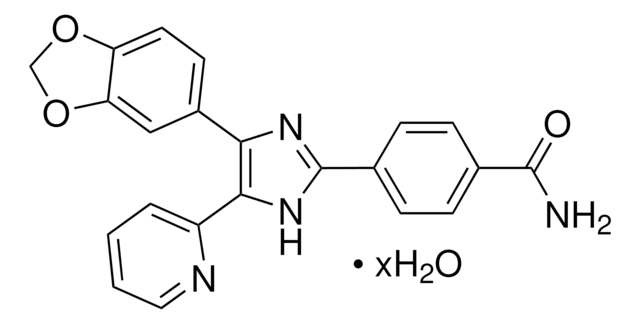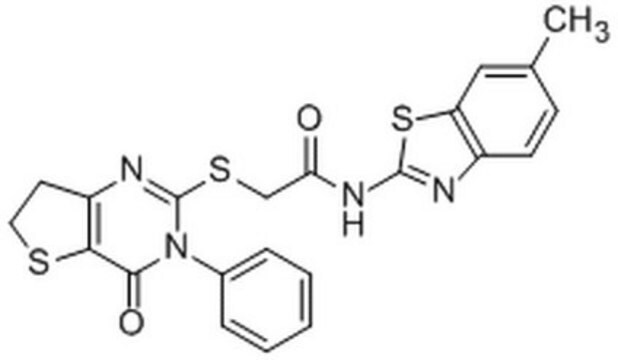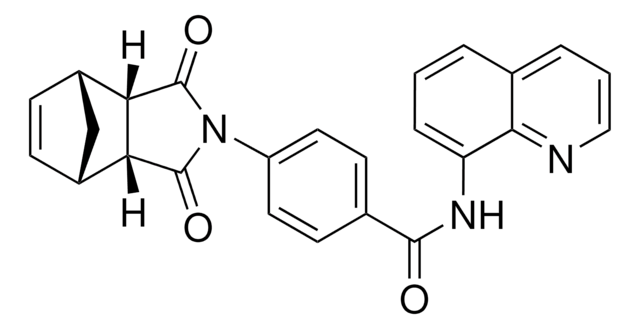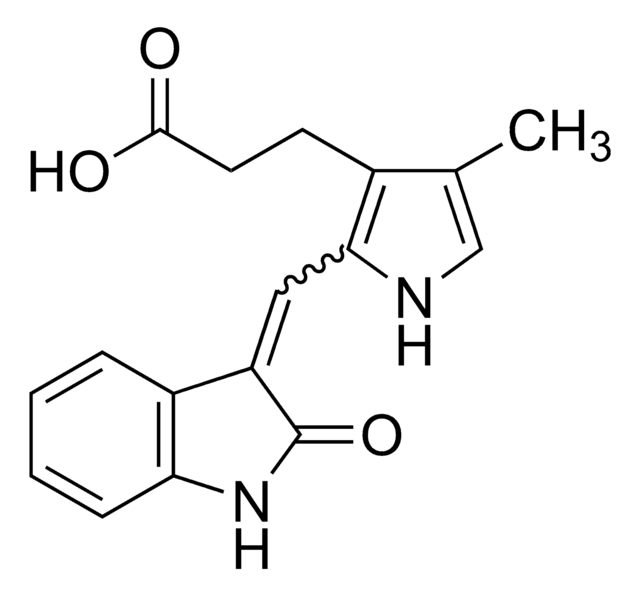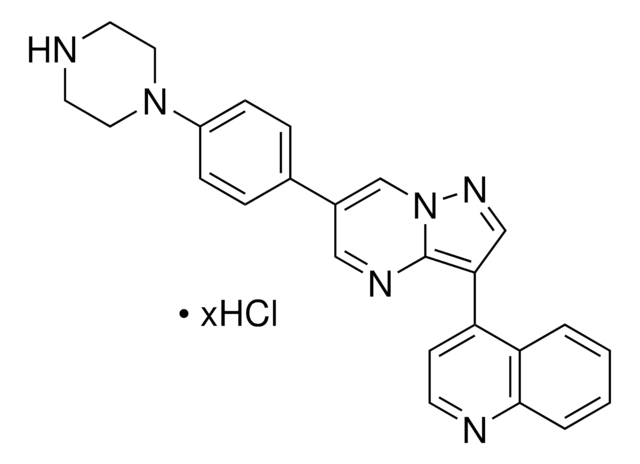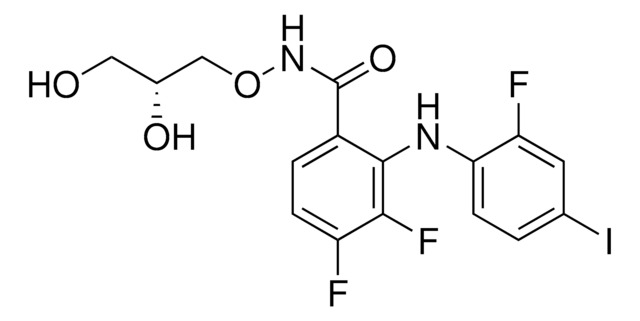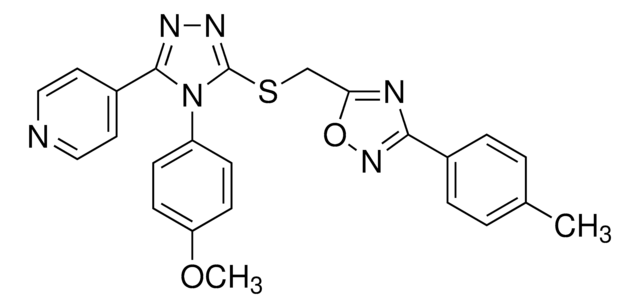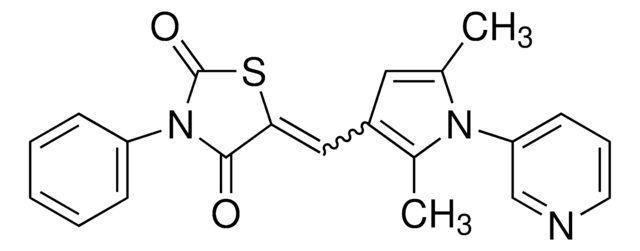I0536
IWP-2
≥98% (HPLC), powder, Wnt antagonist
Sinónimos:
N-(6-Methyl-2-benzothiazolyl)-2-[(3,4,6,7-tetrahydro-4-oxo-3-phenylthieno[3,2-d]pyrimidin-2-yl)thio]-acetamide
About This Item
Productos recomendados
Nombre del producto
IWP-2, ≥98% (HPLC)
Quality Level
assay
≥98% (HPLC)
form
powder
storage condition
desiccated
solubility
DMSO: 2 mg/mL, clear (warmed)
storage temp.
room temp
SMILES string
Cc1ccc2nc(NC(=O)CSC3=NC4=C(SCC4)C(=O)N3c5ccccc5)sc2c1
InChI
1S/C22H18N4O2S3/c1-13-7-8-15-17(11-13)31-21(23-15)25-18(27)12-30-22-24-16-9-10-29-19(16)20(28)26(22)14-5-3-2-4-6-14/h2-8,11H,9-10,12H2,1H3,(H,23,25,27)
InChI key
WRKPZSMRWPJJDH-UHFFFAOYSA-N
Application
Biochem/physiol Actions
Storage Class
11 - Combustible Solids
wgk_germany
WGK 2
flash_point_f
Not applicable
flash_point_c
Not applicable
Elija entre una de las versiones más recientes:
¿Ya tiene este producto?
Encuentre la documentación para los productos que ha comprado recientemente en la Biblioteca de documentos.
Los clientes también vieron
Nuestro equipo de científicos tiene experiencia en todas las áreas de investigación: Ciencias de la vida, Ciencia de los materiales, Síntesis química, Cromatografía, Analítica y muchas otras.
Póngase en contacto con el Servicio técnico


